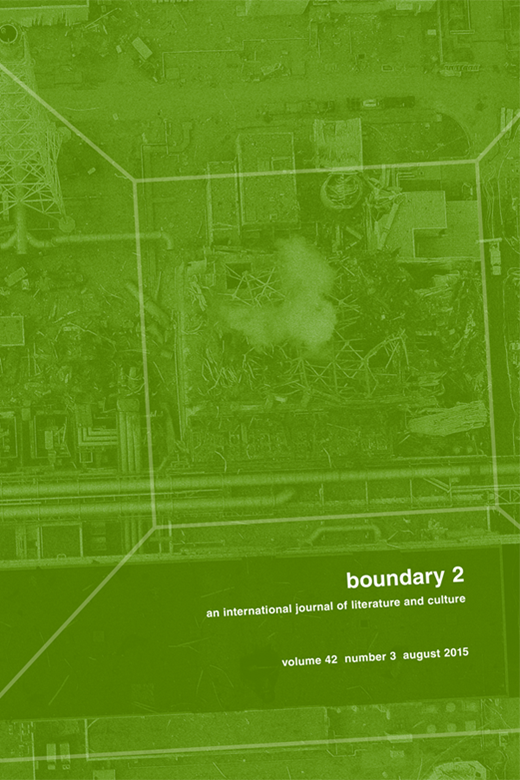If the problem of ideology, as Louis Althusser argues, is about the hailing of interpellation, then ideology can be understood as a problem of the voice. In this essay, I address the politics of the voice by analyzing Emperor Hirohito's so-called surrender speech, which was recorded on August 14, 1945, and broadcast over the radio waves in Japan and its former colonies on August 15, 1945. In the wake of the two atomic bombs dropped on Hiroshima and Nagasaki, never had capitalism in Japan experienced such an acute expression of crisis. This essay explores the relationship between ideology and the voice in a time when the capitalist system and national sovereignty were in shambles. I argue that the recording of the Emperor's voice represents a new expression of imperial power in Japan, one that inaugurates a postwar period of political cynicism and imperial piety.
The abstract above and the journal cover's image on the right are courtesy of Duke University Press.
Publication Type
- Article



